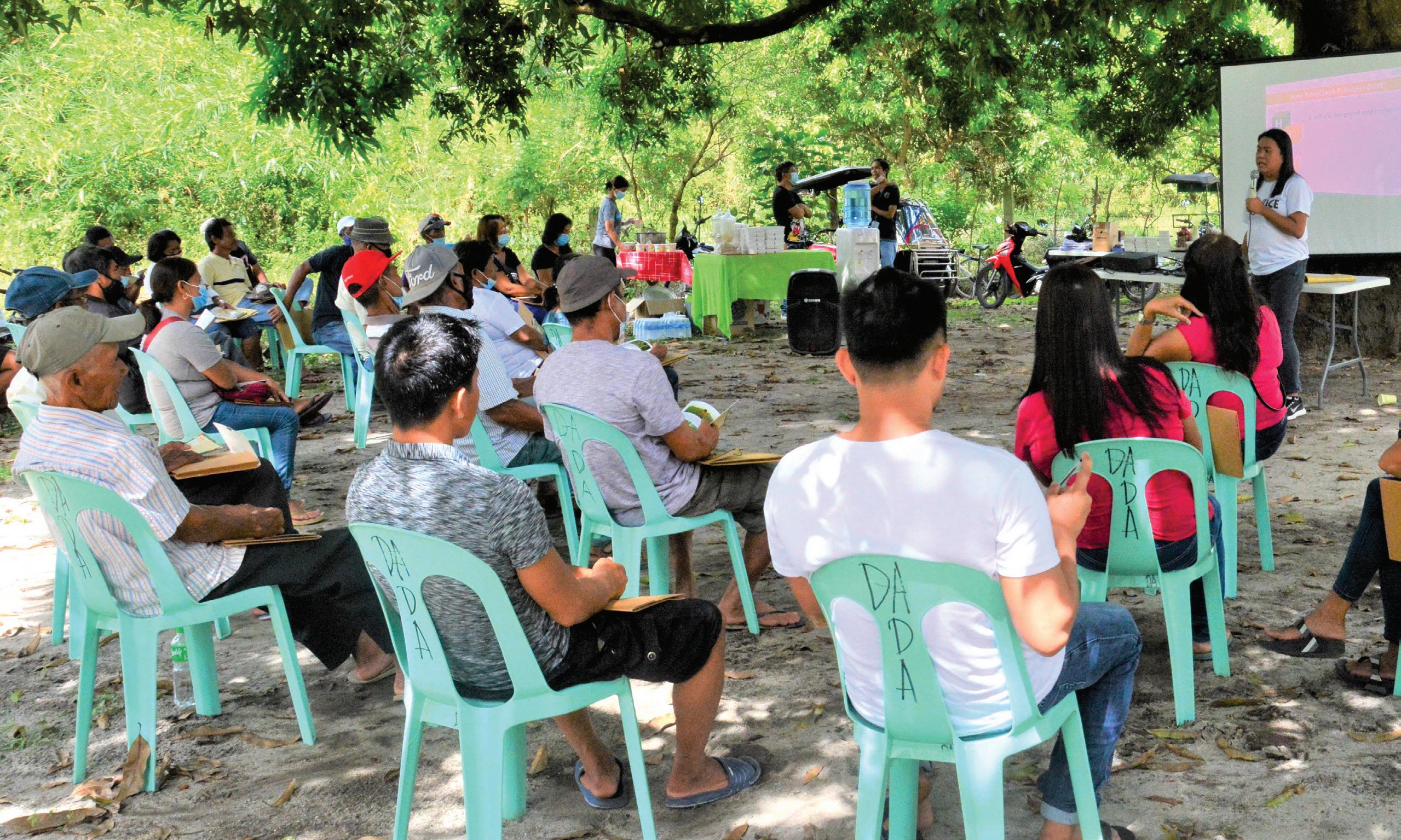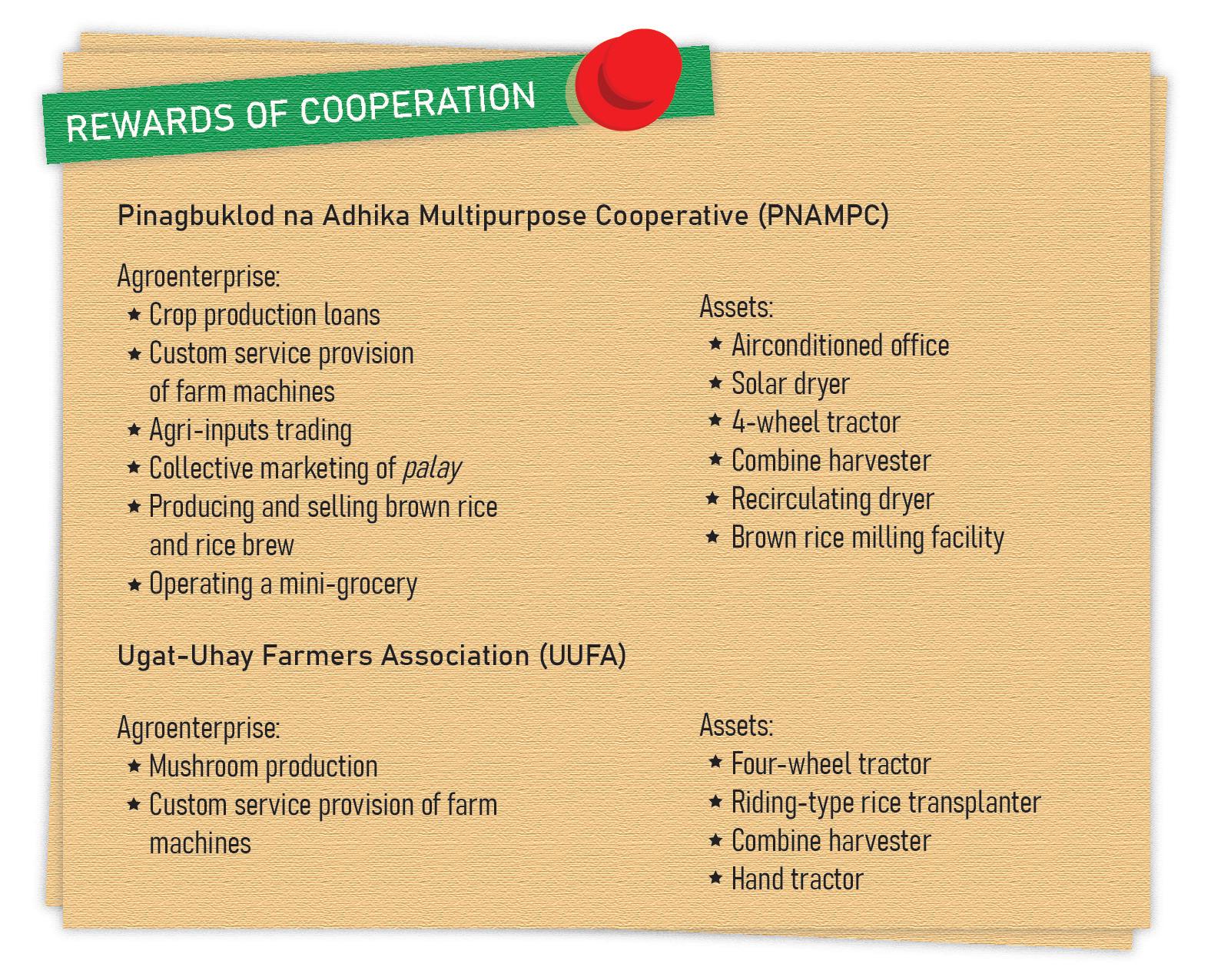
2 minute read
RICEBIS ZARAGOZA: COOPERATION MAKES “SILONG NG MANGGA” PROGRESSIVE
from Magazine 2021 1Q
by LearnPH
RiceBIS ZARAGOZA
Cooperation makes “silong ng mangga” progressive
Advertisement
For people in the city area, “see you at SM” means “meeting at a shopping mall”. Interestingly, to the facilitators and farmer-cooperators of the Rice Business Innovations System (RiceBIS) Community Program at Brgys. Macarse and Mayamot, Zaragoza, Nueva Ecija, “SM” stands for “Silong ng Mangga”.
Such was the expression during the program’s early years of implementation when the villages in the area still had not much – no facilities nor offices, just
PERRY IRISH H. DURAN
nature’s gifts. Fast forward to today, the “password” still rings a bell, nature still generously gives, and yet both Macarse and Mayamot communities are considerably more progressive.
Meeting mentality
In 2017, RiceBIS led by Dr. Aurora Corales of PhilRice made a nationwide search for rice-farming barangays to be its pilot sites. The program aims to establish model communities where farmers increase their yield, lower their production cost, and are linked to market and business development service providers. Eight pilot sites were established in the first year and Zaragoza was one of them. Specifically, the Pinagbuklod na Adhika Credit Cooperative (PNACC), led by Chairperson Francisco Ignacio, was the farmer group in Macarse that embraced RiceBIS.
At the beginning, meetings were held at “SM”; eventually, through the grants secured through the program, PNACC
INFOGRAPHICS BY: REUEL M. MARAMARA

was able to build basic facilities for their meetings.
By 2019, RiceBIS Zaragoza had expanded and included Ugat-Uhay Farmers Association (UUFA) of Brgy. Mayamot, led by Mr. Daniel Parubrub, the sitting barangay chairperson that time.
Like PNACC, UUFA started with almost nothing, having only nature’s gifts and members’ willingness to meet regularly under the inviting shade of a mango tree.
Come clarity, actionable steps, and synergy
Before joining RiceBIS, PNACC only provided crop production loans or credit to its members and their produce were unconsolidated. Within 2017-2020, the coop transitioned from being a credit coop into agricultural, and then into multipurpose, officially being registered as Pinagbuklod na Adhika Multipurpose Cooperative (PNAMPC). The Coop, with the supervision of the RiceBIS agroenterprise development team led by Alice Mataia, a PhilRice economist, managed to complete the required documents particularly business plans, feasibility studies, and other papers.
Mayamot farmers, on the other hand, credit-purchased inputs in bulk by partnering with a supplier, and distributed the inputs to their members with a minimum mark up. RiceBIS enabled them to venture into mushroom production, a rice-based agroenterprise for additional income.
To carry on
“Leadership is a big factor in the effectivity and success of a RiceBIS community,” Mataia observed. Farmer-leaders who can inspire action and follow through with their members are key persons in the appropriate conduct of training from rice production to its value-chain enterprises. At the same time, guidance and cooperation of the program implementers or facilitators, and support from partner agencies and organizations also contributed greatly to the change that occurred in the farming communities. •









